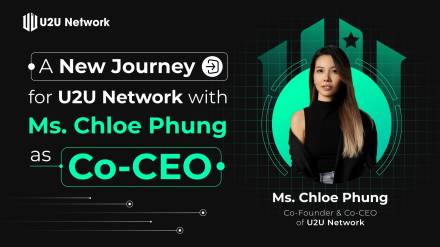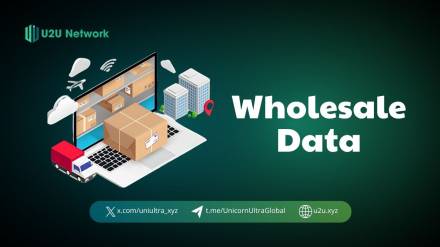Have you ever wondered about the inner workings of cryptocurrencies or the mechanics behind decentralized applications (dApps)? The secrets lie within the code, and one of the most effective ways to demystify blockchain technology is through hands-on experience with DIY projects for developers. Whether you're a seasoned coder or a beginner, this comprehensive guide is designed to ignite your creativity with innovative project ideas, equip you with essential tools, and guide you through the dynamic realm of blockchain development.
Table of Contents
Why Do DIY Blockchain Projects Matter?
Engaging in hands-on blockchain projects offers developers a powerful pathway to skill development, career advancement, and influencing the future of this transformative technology.
Skill Development Beyond Theory
Blockchain development transcends theoretical knowledge; it thrives on practical application. By undertaking DIY projects, developers acquire hands-on experience in coding smart contracts, navigating diverse blockchain frameworks, and tackling real-world issues such as security and scalability. This practical learning not only reinforces understanding but also equips developers with sought-after skills in the job market.
Portfolio Enhancement
A robust portfolio is indispensable in the competitive tech industry. DIY blockchain projects serve as compelling evidence of a developer's initiative, problem-solving prowess, and profound grasp of blockchain fundamentals. They showcase tangible proof of expertise, making developers more appealing to prospective employers and clients alike.
Catalyst for Innovation
Blockchain technology is still in its nascent stages, ripe with opportunities for innovation. DIY projects empower developers to experiment with new concepts, explore emerging fields like decentralized finance (DeFi) and non-fungible tokens (NFTs), and potentially contribute to the evolution of this groundbreaking technology. Whether pioneering new applications or refining existing ones, developers' projects could catalyze the next wave of blockchain advancements.
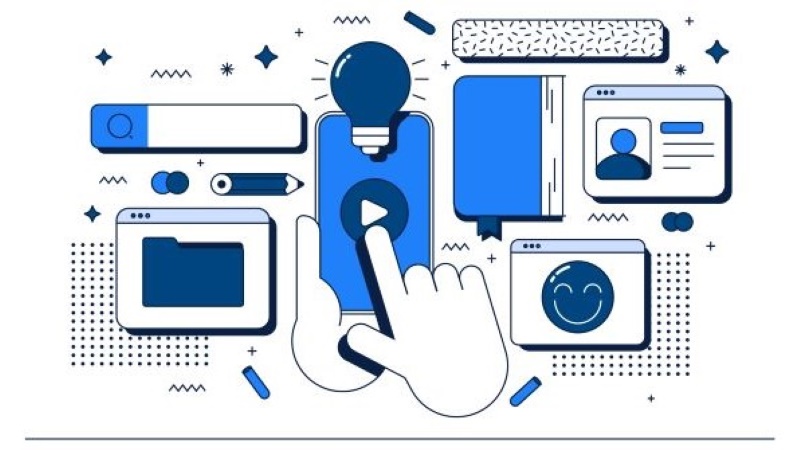
Essential Tools and Resources
Blockchain Frameworks
Choosing the right blockchain framework is crucial for the success of your project, depending on its specific requirements and objectives. Here are three prominent frameworks to consider:
- Ethereum: Renowned for supporting decentralized applications (dApps) and smart contracts, Ethereum is highly versatile and boasts a robust community. It's an excellent starting point for both novice and seasoned developers due to its extensive resources and widespread adoption.
- Hyperledger Fabric: Tailored for enterprise solutions, Hyperledger Fabric operates as a permissioned blockchain framework. Its modular architecture allows for customized network permissions and precise control over participants, making it ideal for scalable business applications.
- Corda: Designed with a focus on privacy and interoperability in financial applications, Corda facilitates seamless communication between organizations. It's particularly suited for projects requiring stringent privacy measures and specific use cases within the financial sector.
Smart Contract Languages
Selecting the right smart contract language is crucial for implementing the logic of your blockchain project:
- Solidity: Dominant in Ethereum development, Solidity features a JavaScript-like syntax and enjoys robust community support. It's well-suited for complex smart contracts and offers extensive documentation.
- Vyper: Known for prioritizing security and auditability, Vyper provides a simpler syntax compared to Solidity. It aims to minimize vulnerabilities common in smart contracts, making it a compelling choice for projects emphasizing safety.
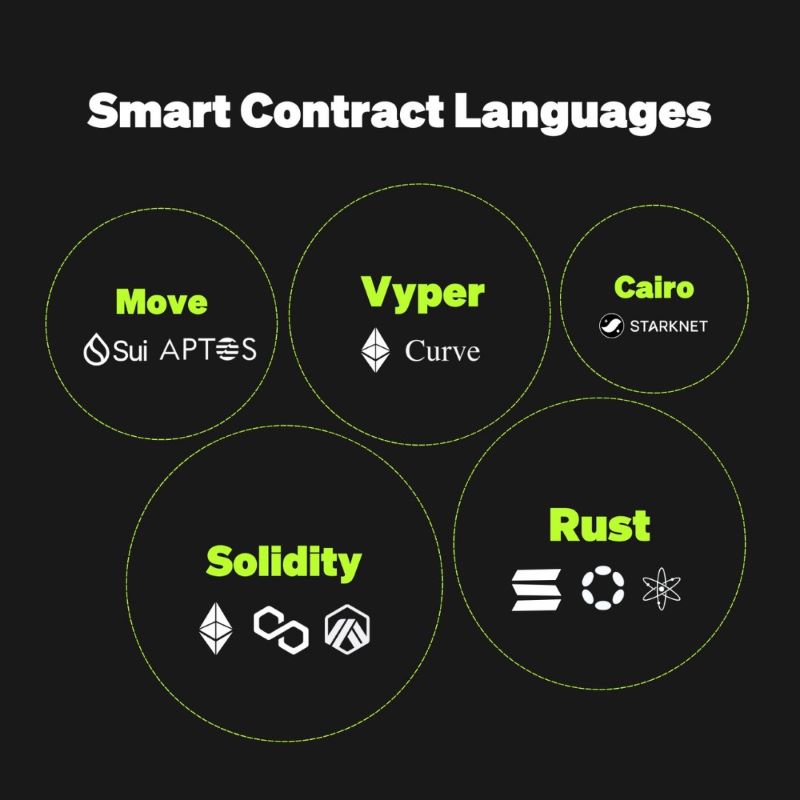
Development Environments
Efficient development environments streamline the creation and deployment of blockchain applications:
- Remix IDE: A user-friendly, browser-based IDE that allows developers to write, compile, and deploy smart contracts directly from their web browser. It's ideal for beginners exploring blockchain development.
- Truffle Suite: Comprehensive in scope, Truffle Suite includes a development framework, testing tools, and deployment utilities. It's well-suited for managing more complex projects, offering advanced features for testing and deployment management.
Additional Resources for Blockchain Developers
Expand your skills and knowledge with these supplementary resources:
- Blockchain Explorers: Tools like Etherscan provide insights into transaction histories, smart contract codes, and network analytics, essential for monitoring and debugging blockchain applications.
- Online Courses and Tutorials: Platforms such as Coursera, Udemy, and YouTube offer a wealth of educational materials on blockchain development, catering to diverse learning preferences and skill levels.
- Developer Communities: Engage with online forums, Discord channels, and social media groups to connect with fellow developers, seek advice, and stay updated on industry trends and best practices.
DIY Projects for Developers Ideas
Beginner Level Projects
Cryptocurrency Wallet
- In-Depth: Building a secure cryptocurrency wallet involves mastering cryptographic principles, securely managing private keys, and interacting with the blockchain to handle balances and transactions.
- Challenges: Security is paramount, requiring robust encryption and features like multi-signature authorization to prevent fund loss from compromised wallets.
- Applications: This project serves as a foundational exploration into cryptocurrency mechanics. It can be expanded to support multiple currencies or integrate with hardware wallets for enhanced security.
Simple Supply Chain Tracker
- In-Depth: Develop a data schema for product information, implement smart contracts to log events (e.g., manufacturing, shipping), and potentially integrate IoT for real-time tracking.
- Challenges: Ensuring data accuracy and integrity is critical to prevent fraudulent entries or tampering in the supply chain data.
- Applications: Valuable for industries such as food, pharmaceuticals, and luxury goods, where provenance and authenticity tracking are essential.
Decentralized Voting System
- In-Depth: Design a secure, anonymous voting system using smart contracts for vote tallying and blockchain for transparency and fraud prevention.
- Challenges: Addressing voter eligibility, preventing double voting, and maintaining anonymity while ensuring accountability pose significant challenges.
- Applications: Suitable for community governance, corporate elections, and future applications in national-level voting.
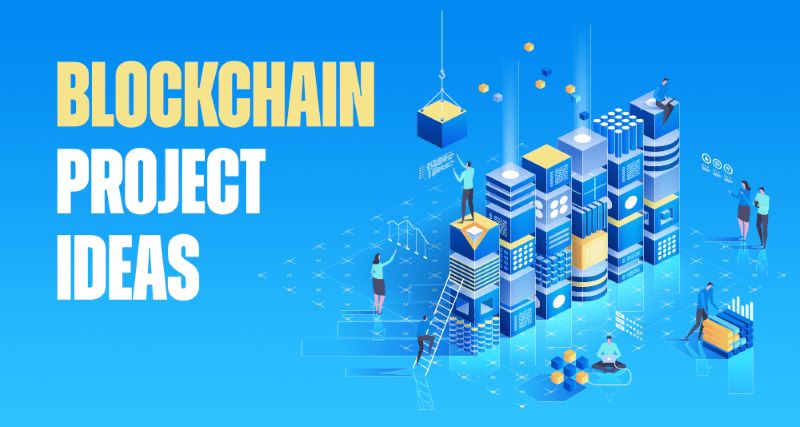
Intermediate Level Projects
NFT Marketplace
- In-Depth: Create an NFT marketplace with features like auctions, bidding, and creator royalties. Integrate decentralized storage (IPFS) for NFT assets.
- Challenges: Designing a user-friendly interface, implementing fair pricing mechanisms, and managing complex NFT metadata are key considerations.
- Applications: Booming in art, collectibles, gaming, and real estate, NFTs offer innovative ownership models and digital asset monetization.
Decentralized Exchange (DEX)
In-Depth: Explore liquidity pools, automated market makers (AMMs), and token swaps. Develop mechanisms to incentivize liquidity providers and ensure efficient trading.
Challenges: Attracting and maintaining liquidity is crucial. Designing systems to foster a vibrant trading environment is essential for DEX success.
Applications: DEXs provide decentralized alternatives to traditional exchanges, enhancing liquidity and user autonomy in cryptocurrency trading.
Tokenized Asset Management System
In-Depth: Tokenize real-world assets like real estate or stocks, enabling fractional ownership and easier transferability. Smart contracts manage ownership rights and dividends.
Challenges: Compliance with legal regulations governing securities and asset ownership is critical for operational legality and investor trust.
Applications: Democratizing investment in traditionally illiquid assets, tokenization unlocks new opportunities for asset ownership and investment diversification.
Advanced Level Projects
Custom Blockchain Network
- In-Depth: Design a bespoke blockchain network with a custom consensus mechanism, block structure, and peer-to-peer networking for node communication.
- Challenges: Requires expertise in distributed systems, cryptography, and network protocols. Security and scalability must be meticulously engineered.
- Applications: Provides maximum customization and control over blockchain infrastructure, ideal for specialized applications demanding tailored blockchain solutions.
Decentralized Autonomous Organization (DAO)
- In-Depth: Develop a self-governing organization where decisions are made via token-based voting. Smart contracts autonomously execute member directives.
- Challenges: Creating a fair governance model resistant to manipulation by malicious actors is paramount for DAO integrity and effectiveness.
- Applications: DAOs manage decentralized projects, investment funds, and social communities, leveraging blockchain for transparent and autonomous governance.
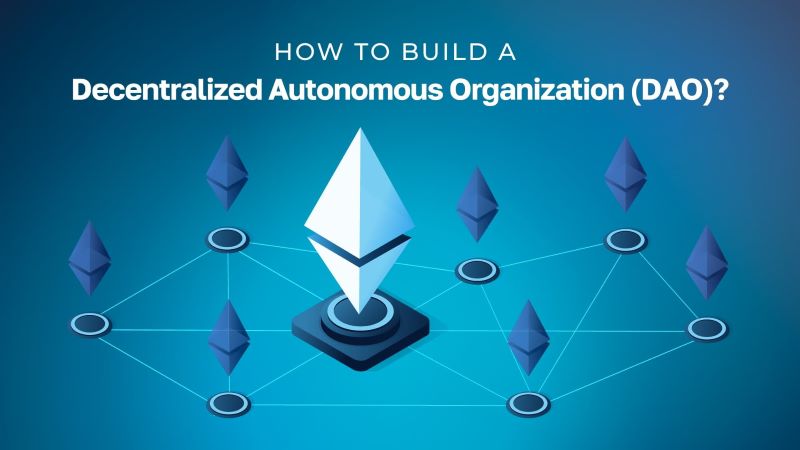
Cross-Chain Interoperability Solutions
- In-Depth: Bridge different blockchains to enable seamless asset and data transfers across disparate blockchain ecosystems.
- Challenges: Overcoming interoperability hurdles posed by varying blockchain architectures and consensus mechanisms requires innovative solutions.
- Applications: Facilitates multi-chain functionalities, enhancing blockchain ecosystem integration and unlocking new synergies in decentralized applications and finance.
Tips for Successful DIY Blockchain Projects
Start Small, Think Big: Begin with a manageable project that matches your current skill level. Initiatives like creating a basic cryptocurrency wallet or a simple supply chain tracker provide solid foundations. As you gain confidence, gradually take on more complex challenges. Each project serves as a stepping stone towards mastering blockchain development.
Tap into the Community: The blockchain community is vast and supportive. Engage actively in online forums, Discord channels, and developer communities. Seek advice, share challenges, and learn from the experiences of others. Collaborate with mentors and fellow developers to accelerate your learning and gain diverse perspectives.
Prioritize Security from Day One: Security is paramount in blockchain development. Start by conducting thorough code audits and familiarize yourself with common vulnerabilities. Implement robust practices for secure key management and avoid rushing deployments. Extensive testing in controlled environments is critical before moving to production.
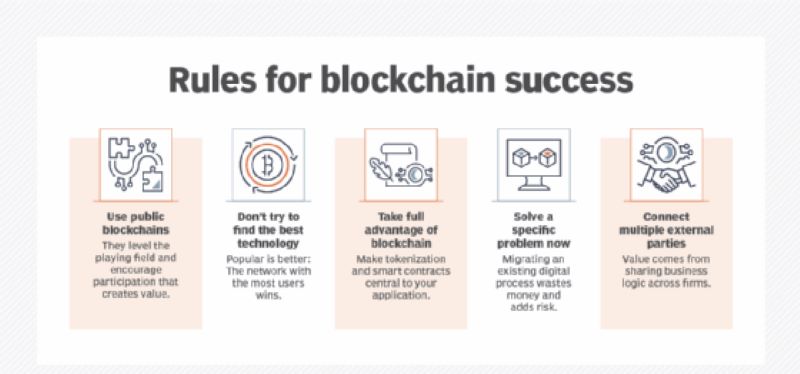
Test Rigorously, Validate Thoroughly: Before deploying on the mainnet, rigorously test your project. Write unit tests to validate individual components and integration tests to ensure seamless interactions. Gather feedback from potential users through user acceptance testing. Stress tests your project to evaluate its performance under various conditions. Consider using bug bounties to incentivize community involvement in identifying vulnerabilities.
Bonus Tip: Embrace the Journey! Building blockchain projects is not just about the end result but also the learning process. Embrace experimentation, learn from mistakes, and celebrate achievements. Enjoy the creative freedom that blockchain development offers, and keep pushing the boundaries of what you can achieve.
Embarking on your blockchain journey through DIY Projects for Developers is not just about coding; it's about empowerment, innovation, and shaping the future. By utilizing platforms like U2U Network, developers gain access to essential tools, resources, and community support to bring their blockchain dreams to life. Dive into the world of DIY blockchain projects, unleash your creativity, and create the decentralized applications of tomorrow. With dedication, knowledge, and the right tools at your fingertips, the possibilities are boundless.


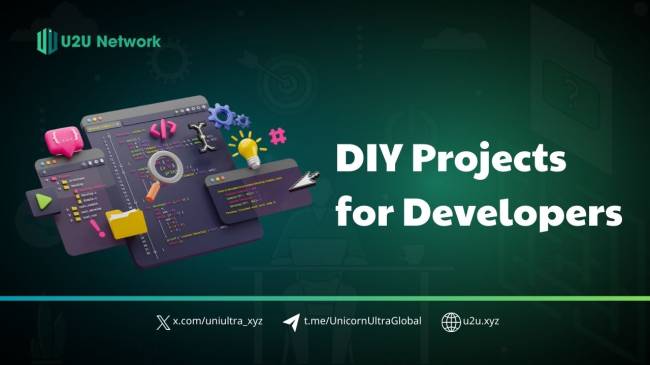
.png)
